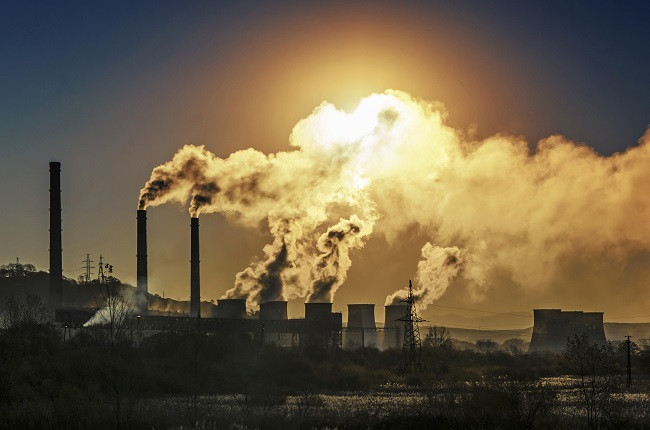The Sustainable Apparel Coalition (SAC), a global coalition has unveiled the Manufacturer Climate Action Program (MCAP) during the 2023 SAC Annual Meeting held in Massachusetts.
SAC comprised over 280 stakeholders including retailers, brands, manufacturers, governments, academics, and non-profit partners.
In collaboration with industry giants NIKE and Target Corporation, SAC has introduced MCAP as an important element of its Decarbonization Program, aimed at galvanizing support and propelling the textile and apparel industry towards significant reductions in CO2 emissions, which are urgently required.

Regarding this, Amina Razvi, CEO, SAC said, “The textile and apparel industry is responsible for a substantial portion of global greenhouse gas emissions. MCAP’s mission is to empower manufacturers, both SAC members and non-members, to measure emissions, set science-aligned targets for Scope 1 and 2 emissions, and accelerate their decarbonization efforts.”
The textile and apparel sector is facing an imminent imperative to collectively reduce global CO2 emissions by 45% by 2030, based on the 2010 baseline, with the ultimate goal of achieving net-zero emissions by 2050.
Joyce Tsoi, Director of Collective Action Programs, SAC said, “Through our Decarbonization Program, we co-create solutions and foster collaborations necessary for systemic change within global supply chains, recognizing that addressing this challenge requires that no single entity can tackle this challenge alone.”
MCAP represents a key initiative, uniting manufacturers globally to accelerate action towards science-aligned emissions targets, significantly reducing global CO2 emissions at scale. By partnering with industry leaders and offering scalable solutions, we can empower our industry to confront emission reductions and instigate the change we need to support low-carbon transition, she added.
Notably, MCAP does not include measurements for Scope 3 emissions, as these often pose obstacles for manufacturers when it comes to setting science-aligned targets. By initially focusing on Scope 1 and 2 emissions, the program aims to offer manufacturers a manageable entry point for their decarbonization efforts.
This program is expected to empower manufacturers to reduce energy consumption, realize cost savings, and meet the environmental expectations of their customers. Additionally, it seeks to promote the exchange of knowledge and the rapid adoption of best practices. Overall, MCAP underscores SAC’s commitment to preserving the planet for future generations.
MCAP will take a pragmatic approach, providing a stepwise process to build manufacturers’ capability to accelerate target setting, and comprises four core elements. Those are:
- Manufacturers set, validate, and disclose company-wide science-aligned emission reduction goals, recognizing this as a fundamental step toward a sustainable future.
- Manufacturers receive recommendations and training on developing climate risk assessments for their operations, including physical and transition risks, documenting these risks to bridge connections with value chain partners, including brands.
- Manufacturers receive guidance for developing their decarbonization plans, responding to the industry’s growing call for transparency and enabling effective allocation of investments and resources.
- Fostering a culture of transparency and accountability, MCAP encourages manufacturers to annually disclose their progress and share reports publicly. This commitment to openness will ensure accountability within organizations and nurture a collective culture of growth and innovation.
These four elements form the core of MCAP, empowering manufacturers to take substantive actions in reducing emissions to combat climate change, improving operational efficiency and growth, and further advancing sustainability throughout the industry.
MCAP evolved from both Target’s Supplier Engagement Program and the Supplier Climate Action Program (SCAP), which was co-developed by NIKE and its suppliers and in consultation with World Resource Institute (WRI).
MCAP is open to both SAC members and non-members, in a concerted effort to accelerate the number of manufacturers with science-aligned targets. The program meticulously integrates key management tools into the program, tailored specifically to meet the unique needs of manufacturers.
These tools include guidance on measuring emissions, assessing risk, benchmarking performance, and leveraging these insights to inform strategic planning.
By establishing these fundamental building blocks, MCAP equips manufacturers with the essential resources they need to develop effective plans and accelerate meaningful climate change actions.
Noel Kinder, Chief Sustainability Officer, at NIKE, Inc, said, “At our size and scale, we have a responsibility to drive impact. With a challenge like climate change, we know we can’t do it alone. NIKE’s SCAP was designed to help suppliers take a leadership role in addressing their climate risk. Working with SAC and Target to develop the MCAP program is the next step in scaling impact across NIKE’s supply chain and the industry.”
Liz Cook, Executive Vice President for Governance & Development, at World Resource Institute (WRI), said, “Supply chain emissions amount, on average, to more than 70% of a company’s greenhouse gas (GHG) emissions. To set, and achieve, ambitious emissions reduction targets across the value chain, companies need to support their suppliers. Beyond MCAP, WRI is pleased to partner with NIKE to accelerate renewable energy solutions in strategic global markets — a key strategy for achieving these objectives. This work is critical to scaling climate action globally.”
The SAC is actively gathering manufacturer interest in MCAP and plans to begin program implementation in 2024. MCAP represents a significant step forward in the global effort to combat climate change.
As part of its strategic plan, the SAC acknowledges that the textile industry alone accounts for up to 8% of global carbon emissions and is committed to a minimum 45% reduction of GHG emissions by 2030. The SAC is committed to supporting its members and the industry in achieving decarbonization.
















